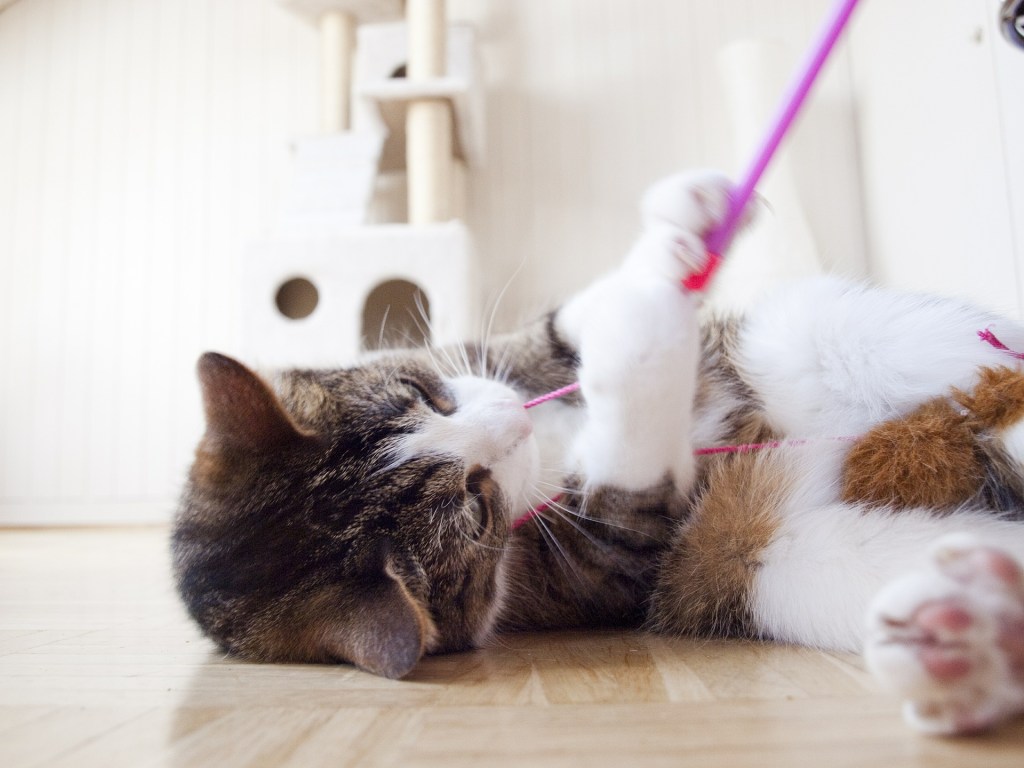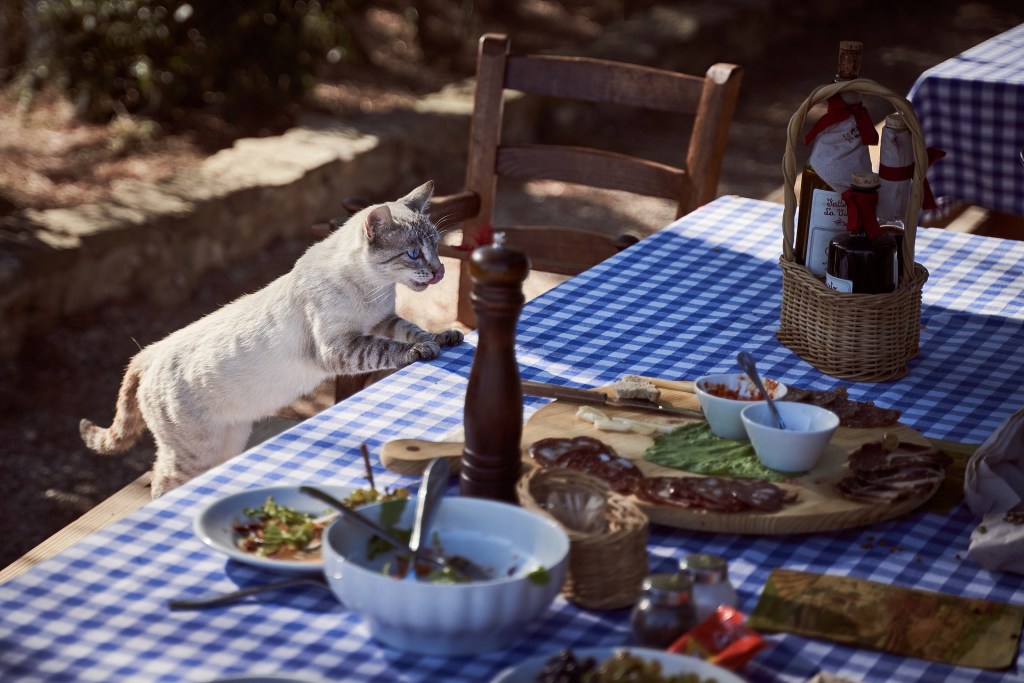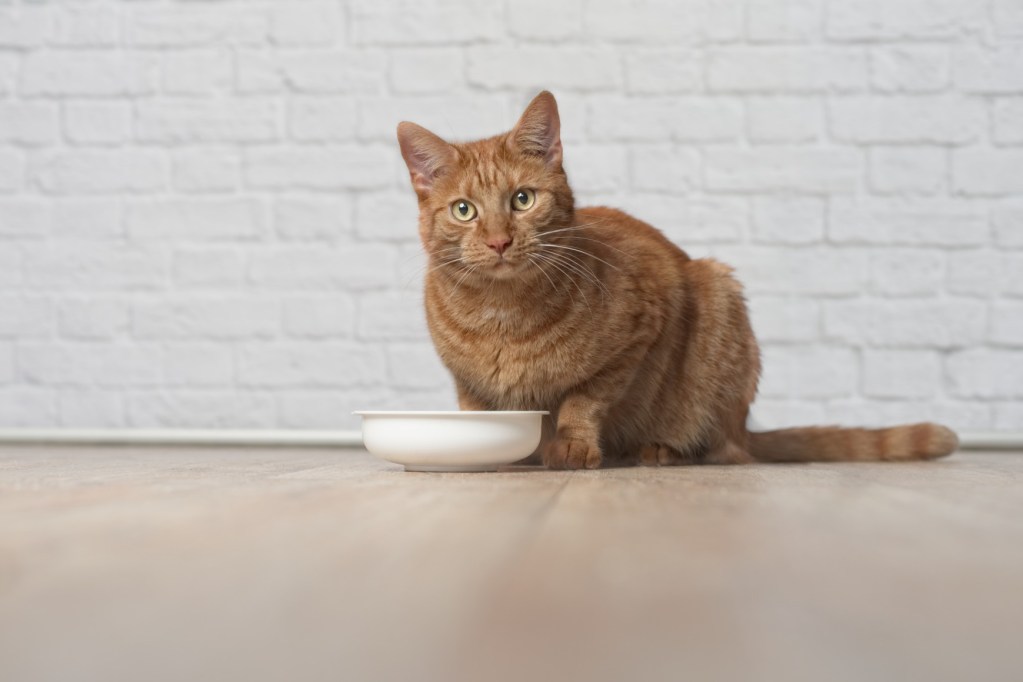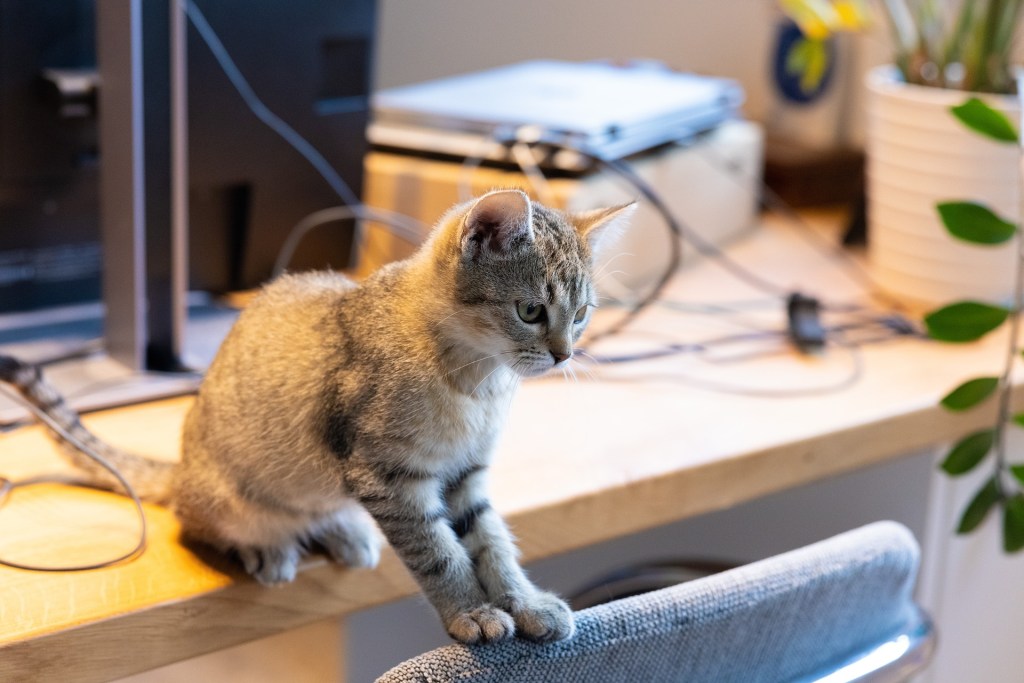Cats are agile, acrobatic, and so incredibly aware of their surroundings; yet chances are you’ve also watched your destructive cat knock numerous items all over the floor. These furry scalawags seem to get a kick out of knocking items over, but when those items are breakable or cups full of water, this feline habit can become frustrating.
So why do cats knock things over, and what can you do about it? Scolding them only deters them for a moment, but this kind of chaos can’t go on forever. Luckily, we’re here to help. According to the Metropolitan Veterinary Center, there are three main reasons behind this destructive behavior — so identifying which one you’re dealing with is the first step toward finding a solution.
Why do cats knock things over? It’s instinctive

Because cats are hunters, they explore the world with their paws. Think about it — cats who find a mouse need to bat it and touch it with their little hands. In doing so, they learn about the mouse and ultimately determine that it’s safe to kill and eat it. And guess what? They catch and kill their prey with paws, too.
Your cat’s hunting instincts carry over to the objects he finds around your home. This instinct is strong, and when your kitty bats at and touches objects, he may be exploring them and learning about them. While he might not be trying to actually knock the items over, it can happen pretty easily.
As you might suspect, your cat has fun knocking things over

Investigating new objects (with his paws) is also fun for your cat. If you’ve brought home something new, like an unfamiliar candle, your cat will quickly identify the change in his environment and want to investigate. The same is true if you rearrange a room or clean up and make the home feel different. Your observant feline will probably be eager to explore, which could be a hands-on experience.
Sometimes, a cat will become particularly fascinated with an object — even something as simple as a pencil! He might touch it initially to check it out, but then when it rolls and makes an intriguing sound, that pencil looks and sounds more like a cat toy. Before you know it, he’s batting it around for the sheer joy of it, but all you see is the nightmare cleanup it’s creating.
Your cat gets your attention when they’re destructive, too

You may have unknowingly contributed to your cat’s wild behavior if you intervene when he knocks something over. Even if it’s just to pick up something from the floor, you’re teaching your kitty that if he knocks things over, you’ll give him attention.
You might not be giving your cat positive attention, but he probably doesn’t care. Try to watch your cat quietly the next time that he knocks things over. See if he’s looking over at you for attention. If he is, wait until he goes away or gets distracted by something else before cleaning up his mess.
Why does my cat keep knocking over the water bowl?

Knocking over objects is one thing, but it can become even more frustrating when your cat decides to sabotage his own water bowl. It’s quite the mess! In addition to the three reasons previously mentioned, this could have another evolutionary explanation.
Still, water frequently means bacteria or even bugs, and so your kitty’s instincts tell her to drink only moving water. You could see your pet splashing in it to make the drink move around in a more natural way. The solution: buy her a cat fountain that will keep the water agitated and more palatable to your little beast. Hopefully, that deters her from messing with it.
What to do if your cat knocks things over repeatedly

Understanding the reasons why your cat knocks things over can help you to make sense of this behavior, but it can still be frustrating to have your cat clearing your counters and damaging your items. Luckily, there are a few ways you can discourage this behavior.
First, if you know your cat likes to knock things over, secure your breakables out of your feline’s reach. You might put them into a display cabinet, store them on shelves your cat can’t climb to, or even put them in a room that your cat doesn’t have access to.
Next, try to understand what’s motivating your cat to knock things over. If your cat is bored, he’s likely performing this behavior because he’s looking for something to do. Buying more cat toys, spending time playing with your cat daily, and even getting some electronic playthings that engage with your cat on their own can help to break up this boredom. You might also consider options like getting your cat a window seat or building him a patio (or “catio,” if you will).
If you catch your cat in the act of knocking things over, try redirecting his attention. Put him on the floor, give him some cat toys, and encourage him to play with more appropriate items. Don’t laugh at him or say anything to him, since this can give him the extra attention that he’s looking for.
In conclusion — keep doing your best!

With time and some vigilance, you may be able to reduce the number of items that your cat knocks over. Remember, though, that cats may mess with things in an effort to explore them. This is natural! Sometimes, the best thing that you can do is to make sure that your belongings are protected and out of your cat’s reach. Keep surfaces clear and avoid items that could harm your cat if he gets a hold of them, like breakable glass objects or lit candles. If you need to keep items out, store them well away from the surface edge. Good luck!



